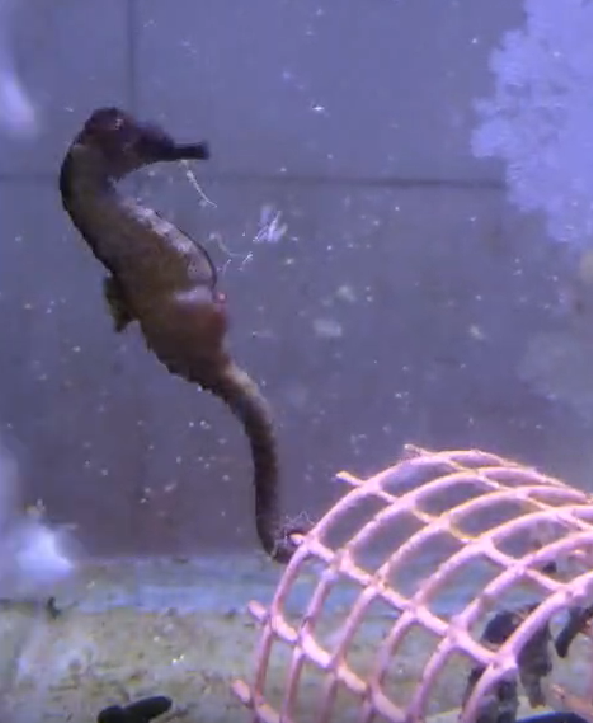Getting your Trinity Audio player ready...
A male seahorse spawns baby fries
(Video: Photo: Ramot Yam Youth Village institute of mariculture)
Baby seahorses, known as fries, were spawned on Thursday in the breeding project of the Ramot Yam Youth Village institute of mariculture. The purpose of the project is to breed and raise seahorses for sale to the aquarium sector, in order to prevent their removal from the wild. Watch the seahorse give birth:
After spawning, the new baby seahorses are separated from the adults. "This kind of spawning happens about once a month. The male is the one who is pregnant. Catching it on camera is the exciting part," the institute said in a statement.
2 View gallery


Spawning seahorse
(Photo: Mika Doron, Ramot Yam Youth Village institute of mariculture)
According to the institute, The sea pony seahorse (scientific name: Hippocampus fuscus) is a species of seahorse that lives in the Indian Ocean, the Persian Gulf, and the Gulf of Eilat. It is considered a migrant to the Mediterranean Sea. Unlike most animals, the male seahorse is the one who spawns. When the seahorses are ready to breed, the female transfers the eggs to the male's pouch. After about three weeks, the male releases the small seahorses, which spread out and find a new place to live. They are traded all over the world and are under the protection of CITES (the Convention on International Trade in Endangered Species of Wild Fauna and Flora), an international agreement between governments whose aim is to ensure that international trade in specimens of wild animals and plants does not threaten the survival of the species.
The institute noted that the students are engaged breeding the seahorses in captivity in order to sell them to stores and private individuals for home breeding, which would prevent wild wild sea horses from being removed from the sea."
Rafi Yavetz, director of the institute, said: "The connection between environment, agriculture, research and education creates an enriching learning experience for the students."






